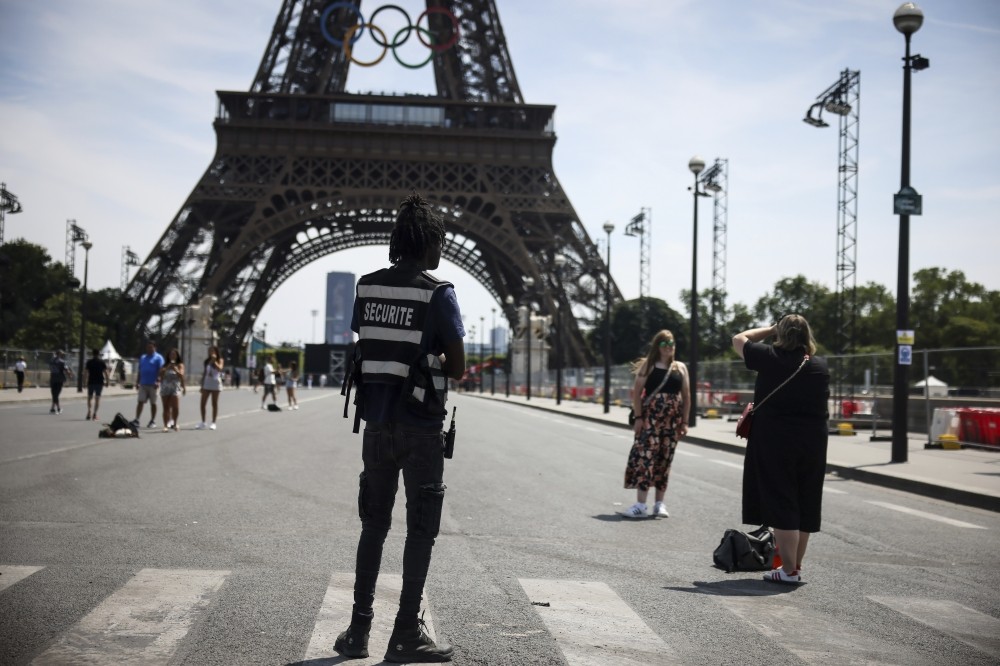21/07/2024
21/07/2024

PARIS, July 21, (AP): A year ago, the head of the Paris Olympics boldly declared that France's capital would be " the safest place in the world " when the Games open this Friday. Tony Estanguet’s confident forecast looks less far-fetched now with squadrons of police patrolling Paris' streets, fighter jets and soldiers primed to scramble, and imposing metal-fence security barriers erected like an iron curtain on both sides of the River Seine that will star in the opening show.
France's vast police and military operation is in large part because the July 26-Aug. 11 Games face unprecedented security challenges. The city has repeatedly suffered deadly extremist attacks and international tensions are high because of the wars in Ukraine and Gaza.
Rather than build an Olympic park with venues grouped together outside of the city center, like Rio de Janeiro in 2016 or London in 2012, Paris has chosen to host many of the events in the heart of the bustling capital of 2 million inhabitants, with others dotted around suburbs that house millions more. Putting temporary sports arenas in public spaces and the unprecedented choice to stage a river-borne opening ceremony stretching for kilometers (miles) along the Seine, makes safeguarding them more complex.
Olympic organizers also have cyberattack concerns, while rights campaigners and Games critics are worried about Paris' use of AI-equipped surveillance technology and the broad scope and scale of Olympic security.
Paris, in short, has a lot riding on keeping 10,500 athletes and millions of visitors safe. Here's how it aims to do it.
A Games-time force of up to 45,000 police and gendarmes is also backed up by a 10,000-strong contingent of soldiers that has set up the largest military camp in Paris since World War II, from which soldiers should be able to reach any of the city's Olympic venues within 30 minutes.
Armed military patrols aboard vehicles and on foot have become common in crowded places in France since gunmen and suicide bombers acting in the names of al-Qaida and the Islamic State group repeatedly struck Paris in 2015. They don't have police powers of arrest but can tackle attackers and restrain them until police arrive. For visitors from countries where armed street patrols aren't the norm, the sight of soldiers with assault rifles might be jarring, just as it was initially for people in France.
"At the beginning, it was very strange for them to see us and they were always avoiding our presence, making a detour,” said Gen. Éric Chasboeuf, deputy commander of the counter-terror military force, called Sentinelle.


